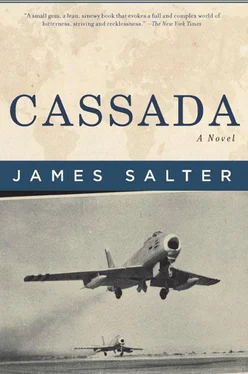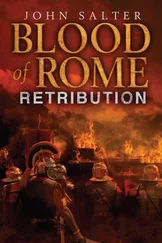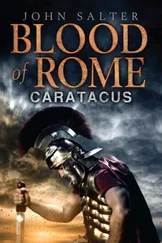Grace hadn’t been able to tell Cassada much. It would have been disloyal to Harlan, to a member of his flight. He just went over the usual things. Make sure the ball is in the center, you don’t want to be even the slightest bit uncoordinated. Try and shoot at a low angle off. The best scores have hits nearly as long as your little finger. Hits the size of your fingernail are no good.
Day after day. Gradually the men on the line became darkened by the sun, and the pilots, too, their hands and faces. Officers and men grew together here, more than anywhere else. They pitched in. They knew one another’s names. The men had their champions, the pilots their favorite crew chiefs and armorers.
Abrams, the operations clerk, worked long hours, as well. He was short and overweight with red cheeks. Isbell was not his favorite nor was he Isbell’s. Too many mistakes, Isbell said. He went over the figures, the gunnery reports.
“What are seven and sixteen?” he said.
“Where is that, sir?”
“Right here.”
“Seven and sixteen,” Abrams said. “Twenty-three.”
“You’ve got twenty-two.”
Abrams looked at the sheet.
“I don’t know what happened there,” he said.
“It’s a mistake is what happened.”
“I’ll fix it,” Abrams said. He knew Isbell wanted to humiliate him. The figures were not that important anyway. Who would find out they had fired three thousand and eighteen rounds instead of three thousand and seventeen? Who would care? There were mountains of ammunition out there. They could lose track of a whole case of it in supply, no one would bat an eye, but let it be just one bullet off… . In the other squadrons it was nothing like this. That was his luck, to be in this one.
The projector in the film room—a plywood booth with a blanket over the entrance to make it dark—was running. From time to time it would stop, go into strained reverse, then start forward again. The two of them were in there; Abrams could hear their voices plainly in the empty building.
“You wasted rounds on every one of those passes. You started to break off before you were finished firing. You have to follow through, just like everything else. Let up on the trigger, track for a split second, then break off”
“Let’s run it through again.”
“No, that’s enough. It’s hard on the eyes.”
Lifting a corner of the blanket, Isbell came out rubbing his eyes with the heels of his hands. He waited until Cassada rewound the reel and put it away.
“I’ll tell you something else,” he said when Cassada emerged. “You’re pressing in a little too close. You’re going to fly right into the target one of these times. That target bar is made of iron. Start breaking off at six hundred feet like you’re supposed to.”
“I’m not going to run into it, Captain.”
“Listen to me. You’ll have a major accident on your hands and the major and I will get the blame. Break off at six hundred feet.”
“Yes, sir.”
“Go ahead and catch the bus. I’m going to be here for a while.”
“What does the schedule look like for tomorrow? I need missions.”
“You’ll see it. Go on, now.”
Cassada hesitated at the door as if he were going to say something, then let go of the jamb and walked out, heading towards the bus stop.
Isbell turned to Abrams,
“All finished?” he asked.
“I’m just checking it over.”
“That doesn’t sound like you.”
Abrams lowered his head as if in even greater effort. “Sir,” he said, “I always check it.”
“You do?”
“Yes, sir.”
“It’s a good thing we’re not running a bank,” Isbell said. “Here, give it to me.”
He took the page and scribbled his name at the bottom of it without looking at the figures. “How many mistakes are in there?” he asked, handing it back.
“Captain, it’s correct. I checked it. There are no mistakes.”
“That would set a record,” Isbell said.
He began reading the score sheets on the wall. They had been posted at the end of the day.
“Those are up to the minute,” Abrams offered.
There was no reply. He began to type the envelope the reports went into.
“We’re not doing too bad,” Isbell murmured, almost to himself.
“No, sir. We’re ahead of the other squadrons. I keep tabs.”
“I know.”
Abrams shook out the black typewriter cover and began to put it back on. Through the window he could see the lone figure, waiting.
“Do you think the lieutenant will win the bet?” he asked.
“I doubt it,” Isbell said. “What do the men think?”
“Well… they’re betting on Lieutenant Harlan, I guess.”
“Probably a good idea,” Isbell said. “Who are you betting on?”
“Oh, I haven’t made any bets. Lieutenant Cassada is certainly trying though, isn’t he?”
“Yeah, he’s trying.”
Abrams glanced out the open window again. “He sort of puts me in mind of the turtle.”
Cassada was walking slowly back and forth, a few steps each way, watching for the bus.
“Which turtle?”
“You know, Captain. The one that beat the rabbit. In the story.”
“That’s a little lesson for you, isn’t it?”
“He might come from behind, like the turtle.”
“We’ll see. It’s a good thing he believes in himself.”
“Yes, sir.”
“Doesn’t always mean a lot. I can tell you that from experience.”
In flying school Cassada had been an enthusiastic student. He loved flying and had never, from the very first, felt any fear. When he received his wings he could not repress his excitement and pride. He’d had two years of college and for a while the love, somewhat dramatic, of a girl in Savannah who wanted to be an actress, but all that did not matter compared to what lay ahead. He was going to join the ranks, go to a squadron overseas. He was going to make a name for himself, become known.
Somehow it had not happened. He had found himself under the command of an unsympathetic officer who neither liked nor tried to understand him. He had never imagined this as a possibility. It had stolen all the joy out of life. The squadron was like a large family with a history he was not really part of, and he felt like a foster child in the house of a stern father. He looked forward only to the day that Wickenden would be gone. He disliked Wickenden and could hardly look at him. He would receive a bad effectiveness report from him, he knew, and already accepting that, he behaved with indifference, almost sullenly and ready to take offense at the least provocation.
Challenging Harlan, a veteran in a flight he would have liked to belong to, was an impulsive act of pride and defiance, though he secretly believed he might win them by it and, outdoing Harlan, show he was worthy to belong. If only he could even come close!
He’d had no success. The many things that had to be done correctly, he could not seem to put together. The secret eluded him. He had gone several times to the bore-sighting pit where the planes, mounted on large jacks, had their guns adjusted and then fired, a round at a time, to be sure they converged at the right point. He had kept a list of which airplanes made good scores. The armament men knew him and were fond of him, but try as he might he could not do better than twelve or fifteen percent until one morning when suddenly, as if a key had been turned, everything had come together. The air had been smooth, the passes good, and even time itself seemed to have slowed a little so that the target, leaning slightly, large and white, the tail of it fluttering, had been there for a fraction of a second longer than usual, and he came down to find it filled with green hits, the color he had been firing! He’d gotten thirty-two percent, more than double anything he’d achieved before. He could hardly believe it, but there it was, green holes all through it, thirty-two percent! His spirits soared. He would do even better.
Читать дальше












